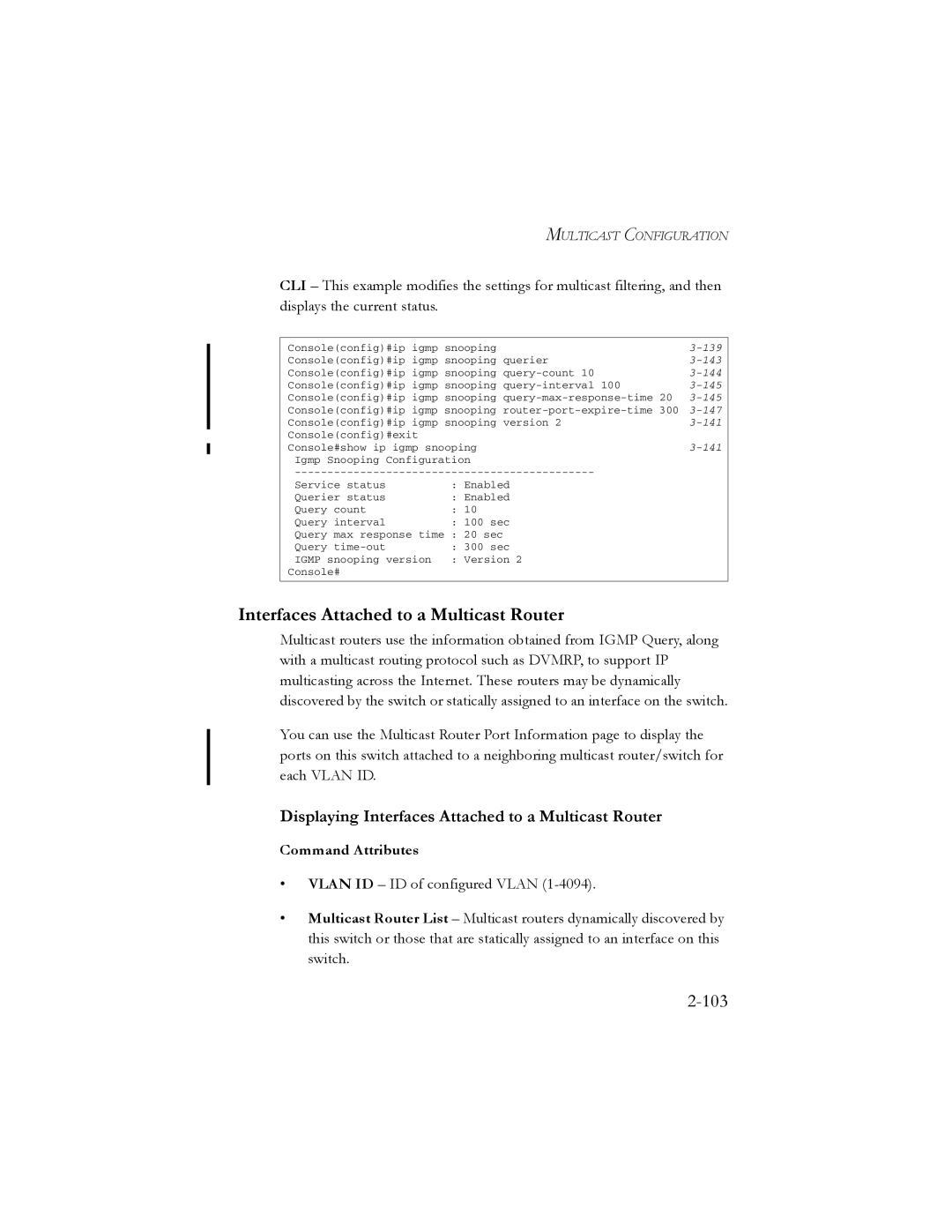MULTICAST CONFIGURATION
CLI – This example modifies the settings for multicast filtering, and then displays the current status.
Console(config)#ip igmp snooping | ||
Console(config)#ip igmp snooping querier | ||
Console(config)#ip igmp snooping | ||
Console(config)#ip igmp snooping | ||
Console(config)#ip igmp snooping | ||
Console(config)#ip igmp snooping | ||
Console(config)#ip igmp snooping version 2 | ||
Console(config)#exit |
|
|
Console#show ip igmp snooping | ||
Igmp Snooping Configuration |
| |
| ||
Service status | : Enabled |
|
Querier status | : Enabled |
|
Query count | : 10 |
|
Query interval | : 100 sec |
|
Query max response time : 20 sec |
| |
Query | : 300 sec |
|
IGMP snooping version | : Version 2 |
|
Console# |
|
|
|
|
|
Interfaces Attached to a Multicast Router
Multicast routers use the information obtained from IGMP Query, along with a multicast routing protocol such as DVMRP, to support IP multicasting across the Internet. These routers may be dynamically discovered by the switch or statically assigned to an interface on the switch.
You can use the Multicast Router Port Information page to display the ports on this switch attached to a neighboring multicast router/switch for each VLAN ID.
Displaying Interfaces Attached to a Multicast Router
Command Attributes
•VLAN ID – ID of configured VLAN
•Multicast Router List – Multicast routers dynamically discovered by this switch or those that are statically assigned to an interface on this switch.
